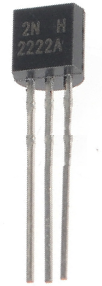Transistor Derating Factor

The derating factor of a transistor is the amount by which the power dissipation rating of a transistor falls when the transistor junction temperature increases.
The power dissipation rating of a transistor is usually given at 25°C. At higher temperatures, the power dissipation rating is less. For most silicon transistors, the maximum allowable junction temperature is between 150° and 200°C. Temperatures higher than this will destroy the transistor. This is why a manufacturer must specify a maximum power rating for the transistor.
The transistor's power dissipation rating must be kept to less than its rated value so that the junction temperature will not reach destructive levels. Manufacturers usually supply derating factors for determining the power dissipation rating at any temperature above 25°C. The derating factor is specified in W/°C. For example, if a transistors has a derating factor of 2mW/°C, then for each 1°C rise in junction temperature, the power rating of the transistor is reduced by 2mW.